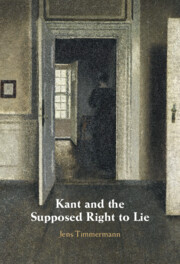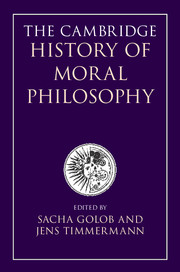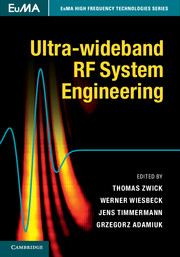104 results

Kant and the Supposed Right to Lie
- Coming soon
-
- Expected online publication date:
- June 2024
- Print publication:
- 30 June 2024
-
- Book
- Export citation
Chapter 6 - Emerging Autonomy
-
-
- Book:
- The Emergence of Autonomy in Kant's Moral Philosophy
- Published online:
- 05 October 2018
- Print publication:
- 25 October 2018, pp 102-121
-
- Chapter
- Export citation
Autonomy, Progress and Virtue: Why Kant has Nothing to Fear from the Overdemandingness Objection
-
- Journal:
- Kantian Review / Volume 23 / Issue 3 / September 2018
- Published online by Cambridge University Press:
- 21 August 2018, pp. 379-397
- Print publication:
- September 2018
-
- Article
- Export citation
30 - Kant
-
-
- Book:
- The Cambridge History of Moral Philosophy
- Published online:
- 13 December 2017
- Print publication:
- 07 December 2017, pp 394-409
-
- Chapter
- Export citation
Acknowledgements
-
- Book:
- The Cambridge History of Moral Philosophy
- Published online:
- 13 December 2017
- Print publication:
- 07 December 2017, pp xii-xii
-
- Chapter
- Export citation
Copyright page
-
- Book:
- The Cambridge History of Moral Philosophy
- Published online:
- 13 December 2017
- Print publication:
- 07 December 2017, pp iv-iv
-
- Chapter
- Export citation

The Cambridge History of Moral Philosophy
-
- Published online:
- 13 December 2017
- Print publication:
- 07 December 2017
Contents
-
- Book:
- The Cambridge History of Moral Philosophy
- Published online:
- 13 December 2017
- Print publication:
- 07 December 2017, pp v-ix
-
- Chapter
- Export citation
Index
-
- Book:
- The Cambridge History of Moral Philosophy
- Published online:
- 13 December 2017
- Print publication:
- 07 December 2017, pp 731-752
-
- Chapter
- Export citation
Contributors
-
- Book:
- The Cambridge History of Moral Philosophy
- Published online:
- 13 December 2017
- Print publication:
- 07 December 2017, pp x-xi
-
- Chapter
- Export citation
Introduction
-
-
- Book:
- The Cambridge History of Moral Philosophy
- Published online:
- 13 December 2017
- Print publication:
- 07 December 2017, pp 1-4
-
- Chapter
- Export citation
Contributors
-
-
- Book:
- Kant's <I>Lectures on Ethics</I>
- Published online:
- 05 May 2015
- Print publication:
- 23 April 2015, pp ix-xii
-
- Chapter
- Export citation
Chapter 4 - Mrongovius II: a supplement to theGroundwork of the Metaphysics of Morals
- from Part I - The Sources
-
-
- Book:
- Kant's <I>Lectures on Ethics</I>
- Published online:
- 05 May 2015
- Print publication:
- 23 April 2015, pp 68-83
-
- Chapter
- Export citation
12 - Kantian ethics and utilitarianism
-
-
- Book:
- The Cambridge Companion to Utilitarianism
- Published online:
- 05 February 2014
- Print publication:
- 30 January 2014, pp 239-257
-
- Chapter
- Export citation
Contributors
-
-
- Book:
- The Cambridge Companion to Utilitarianism
- Published online:
- 05 February 2014
- Print publication:
- 30 January 2014, pp ix-xii
-
- Chapter
- Export citation
References
-
- Book:
- Ultra-wideband RF System Engineering
- Published online:
- 05 December 2013
- Print publication:
- 03 October 2013, pp 171-182
-
- Chapter
- Export citation
Index
-
- Book:
- Ultra-wideband RF System Engineering
- Published online:
- 05 December 2013
- Print publication:
- 03 October 2013, pp 183-185
-
- Chapter
- Export citation
1 - Introduction
-
-
- Book:
- Ultra-wideband RF System Engineering
- Published online:
- 05 December 2013
- Print publication:
- 03 October 2013, pp 1-4
-
- Chapter
- Export citation
List of contributors
-
- Book:
- Ultra-wideband RF System Engineering
- Published online:
- 05 December 2013
- Print publication:
- 03 October 2013, pp vii-viii
-
- Chapter
- Export citation

Ultra-wideband RF System Engineering
-
- Published online:
- 05 December 2013
- Print publication:
- 03 October 2013



